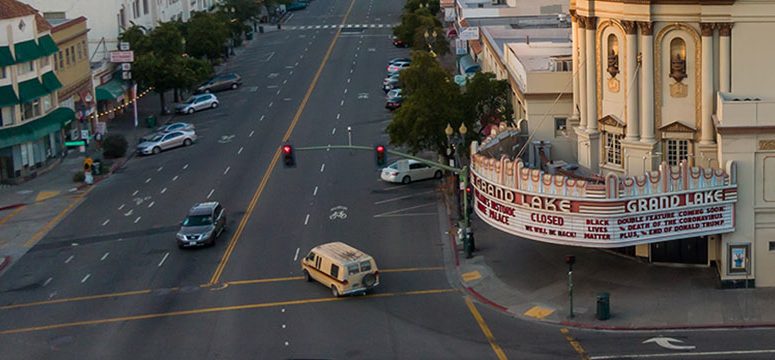The growth of car-share has helped people forgo the expense of car ownership in major cities like Washington and Seattle, where it's been widely adopted. But not every city has the market to sustain car-share services from companies like Zipcar or Hertz. In his book Walkable City, Jeff Speck writes that your city might not be "ready" for car-share if, when you stick out your hand downtown, a cab doesn't stop.
Now an organization in Buffalo, New York, is working to open up car-share to new markets and new demographics. The non-profit Buffalo CarShare has grown to serve 500 members since it launched four years ago in one of the poorest cities in the country.
Making car-share work in a city like Buffalo took some adaptation. Co-founder and executive director Creighton Randall says Buffalo CarShare has had to adjust its business model to appeal to a much more diverse clientele than, say, Zipcar. Nearly half of Buffalo CarShare's members live in households with an annual income of less than $25,000. About a quarter don't have an email account. By contrast, less than 13 percent of Zipcar users report household incomes lower than $30,000. In Buffalo, Zipcar markets its cars almost exclusively to University of Buffalo students and staff.
Buffalo CarShare is able to reach people with low incomes primarily because -- in contrast to Zipcar -- it is willing to serve customers face-to-face or through the mail, if need be, Randall says. The business operates out of a transit-accessible storefront near the city center -- and many of its customers are walk-ins. The organization is also willing to send out bills by mail, or accept money orders. Its 14 cars are sited at 12 different locations across the city.
"If we appealed to the same membership base in other cities where this works, it just wouldn’t work," said Randall. "For car-sharing to work in a smaller city like Buffalo, that doesn’t have an enormous college as an anchor institution, it needs to work for everybody."
Buffalo CarShare was started in 2008 by a group of six friends after they landed a grant from the New York State Energy Research and Development Authority. It operates as a non-profit and continues to accept grant funding to supplement revenue from customers.
The founders drew inspiration from a Minneapolis-based non-profit called Hourcar, which was launched in 2005 with grants from the McKnight Foundation and the Central Corridor Funders Collaborative (backers of the city's new light rail line). Hourcar is growing from 39 to 70 cars this year and currently serves 1,900 members.
Randall says Buffalo CarShare does not seek collateral from members before letting them take out cars. "We have a lot of face-to-face interaction with our members," said Randall. "That solves a lot of problems for us." Buffalo CarShare does a thorough driving record examination before it accepts new customers, he said.
This year, Buffalo CarShare is entering an expansion phase. The organization is in the "beta" stages of a bike-share launch. They have purchased 75 bikes in partnership with the Buffalo Niagara Medical Campus, Seneca Gaming Corporation, and University at Buffalo. Instead of docking stations, the system -- called Go Bikes -- will use bikes with internal GPS and locking mechanisms, supplied by the company Social Bikes. Buffalo CarShare plans to eventually take the lead on a city-wide program that would include hundreds of bikes. They hope the lower initial costs of this system can help make bike-share more accessible to people with a variety of income levels as well.
The organization is also planning to expand its car-share fleet "considerably," thanks to an infusion from a major grant. The organization is also assisting some partners in Albany with the launch of Capital CarShare.
This model, Randall says, has the potential to open up the whole Rust Belt to car sharing.







